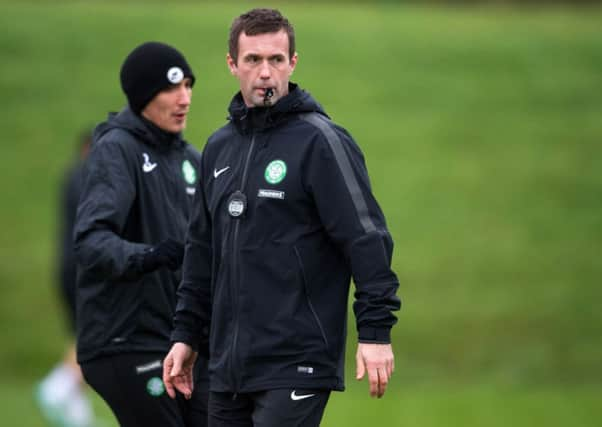Deila talks up Scottish game after Hearn remarks


Hearn’s remarkably unvarnished address to the inaugural Scottish FA Convention at Hampden on Wednesday has ignited debate over the commercial and promotional deficiencies of the national sport which remains without a title sponsor for its flagship league.
Deila, the man whose team is likely to top that league next May, shares Hearn’s view that those at the heart of Scottish football are currently failing to maximise the value of their product.
Advertisement
Hide AdAdvertisement
Hide AdThe Celtic manager has been in Scotland for six months now and likes what he sees – not only from his own club and players, but also from rival teams he believes are committed to playing football in an attractive and progressive manner.
Deila has also noted the stark contrast in both media exposure afforded to and fan engagement in Scottish football when compared to his Norwegian homeland and the rest of Scandinavia. He agrees with Hearn that it all adds up to a package which should be far easier to sell.
CONNECT WITH THE SCOTSMAN
• Subscribe to our daily newsletter (requires registration) and get the latest news, sport and business headlines delivered to your inbox every morning
“The most important thing to do is talk up the product,” said Deila, who is fast becoming one of the most engaging and illuminating voices in the Scottish game.
“Don’t put it down. I think you have some of the same challenges as we have back in Norway. You have to remember you only have around five million people in Scotland, about the same as Norway. It’s more than 50 million in England.
“But the level here compared to other nations, if you take it as percentage of population, is quite good. People love football in this country and are coming to games all the time. The newspapers are full of it and it’s on the radio and television all the time. It’s a culture here, not just a game – it’s a very good thing for Scotland.
“That’s something Scotland should be really proud of in my opinion. As I say, there are five million people in Norway, nine million in Sweden, roughly seven million in Denmark, yet Scotland is the best in terms of interest in the game.
“I love it here. The atmosphere is better than Norway. If you compare it to Norway, I think around 10 per cent of the people in towns in Scotland go to football matches. It is also not the same in England. There are more people coming here to games than there is down there.
Advertisement
Hide AdAdvertisement
Hide Ad“It’s not fair to talk down the level here when you see how many people live in England and how much money they have compared to others.
“Football is not only about quality. It’s also about culture – an atmosphere and supporting your home team and following them whoever they are. That is something Scotland should be very proud of.
“It’s not always about the level of the football, it’s also about entertainment. And what we need to do is speak well about the product. It’s important to play exciting football, try to attack and to have the intensity.
“Okay, maybe the Scottish national team hasn’t been so good in the recent past but they are coming up now. If they get to the next World Cup they would be on the same level as Sweden and Denmark. Norway isn’t there.
“Celtic has gone through to the Champions League several times and no club from Scandinavia, apart from Malmö this season, has done that lately.
“There are a lot of positive things happening in Scottish football. I think we are doing well here but we can still improve. That will come with better training and letting the youngsters play first-team football.
“Back in Norway, we have more teams in the top league which means that some of the games are not so interesting. But also, the youngsters get more opportunities. That’s something positive. We try to play football. Before, it was a lot of long balls and trying to win in the short-term. Now the teams in Norway are trying to play attacking football like in Holland.
“I think that’s also happening in Scotland. I’d heard the theory that every Scottish team is playing long balls – but I just don’t see that. Very few teams here are doing that.
Advertisement
Hide AdAdvertisement
Hide Ad“People are adapting to the European way of playing, although we are still some years behind the best teams – especially those in southern Europe like Spain and Portugal. But a lot of positive things are happening here.
“We always need to try and do things better and develop things. Then we will get even better because here there is a football culture.”
In a week when Inverness Caledonian Thistle could not find the time to hold a pre-match media conference ahead of their Scottish Cup replay against St Mirren which attracted just 1,326 spectators, Deila also believes all clubs have a duty to ensure their managers and players perform an active role in promoting the game.
“Let the players gives something of themselves to the public,” added Deila. “A little bit like John Guidetti has done so far at Celtic. Some players speak okay in the media but Guidetti is loved not just because he is a good footballer, but also because he is giving something of himself to the fans through the media and I think that’s important.
“That will also build up the status of Scottish football.”
SCOTSMAN TABLET AND IPHONE APPS